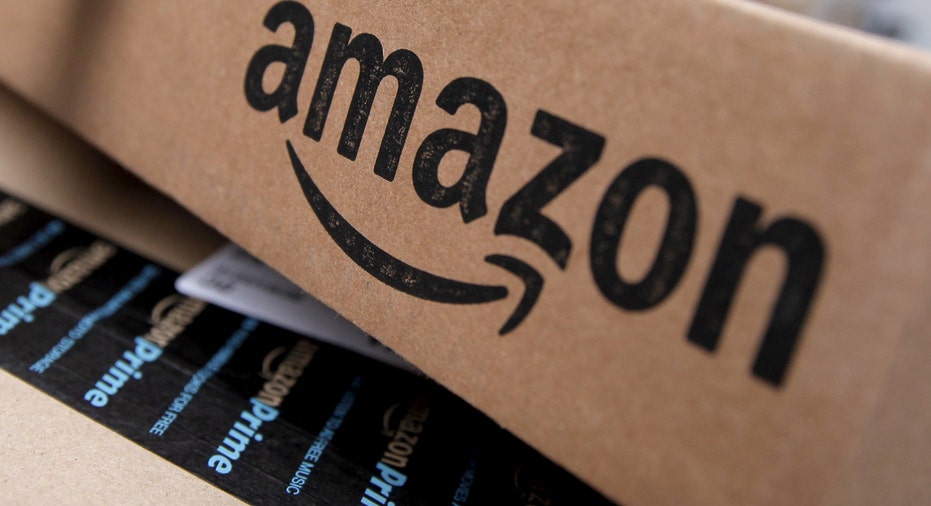Amazon sales and spending rise, profit and shares plunge

Amazon.com on Thursday reported a jump in retail sales along with a profit slump, as its rapid, costly expansion into new shopping categories and countries showed no sign of slowing.
The world's largest online retailer posted second-quarter revenue of $38 billion, up 25 percent from a year earlier. The breakneck growth stood in contrast to the fate of many brick-and-mortar rivals, who have struggled to find their footing as more people shop online.
Yet Seattle-based Amazon posted a 77 percent drop in quarterly income, and even said it could lose up to $400 million in operating profit during the current quarter. Beyond reflecting retail's notoriously thin margins, the forecast signaled Amazon would invest heavily to maintain its dominance.
Shares - up nearly 40 percent this year - fell 3.2 percent to $1,012.68 in after-hours trading. The company had earned 40 cents per share instead of $1.42 as analysts had expected, according to Thomson Reuters I/B/E/S.
"Q3 is generally a high investment period," Chief Financial Officer Brian Olsavsky said on a call with reporters, citing spending on fulfillment and hiring to prepare the company for the Christmas holiday rush. He added, "Our video content spend will continue to grow, both sequentially and quarter over quarter."
Indeed, investing in faster shipping and video has become a refrain of sorts for the company. While some expected Amazon's spending in these areas - stepped up since last year - to ease, the company is plowing ahead to reinforce its fast-shipping club Prime.
Olsavsky said video content included with Prime membership has helped Amazon retain subscribers and persuade those on a free trial to sign up for $99 per year in the United States. A cornerstone of the company's strategy, Prime encourages shoppers to buy more goods, more often from Amazon.
Subscription sales including Prime fees rose 51 percent in the second quarter to $2.2 billion. Cowen & Co analysts have estimated that more than 50 percent of U.S. households will have Prime membership by the end of 2017.
"The fact that they are investing on so many fronts right now just speaks to the opportunity that they have before them," said Edward Jones analyst Josh Olson. "We are giving them the benefit of doubt here because they have executed so well historically."
NEW FRONTIERS AND COSTS
Shares of Amazon had touched a record high of $1,083.31 earlier on Thursday, helping Chief Executive Officer Jeff Bezos briefly unseat fellow tech billionaire Bill Gates to become the world's richest person, according to Forbes. His wealth has followed the meteoric rise of Amazon's stock.
From its origins as an online bookseller, Amazon has jumped into areas that historically had barriers to e-commerce, from apparel to appliances. The specter of Amazon's disruption now hangs over a dizzying array of industries.
Grocery is the latest to feel the threat. The company said last month it would buy Whole Foods Market Inc for $13.7 billion, pending regulatory approval.
Olsavsky declined to discuss in detail the company's strategy for the upscale grocer but said, "We really think it will be a big boost for us as we expand our grocery and consumables offering."
Amazon also announced its two-hour delivery service Prime Now in Singapore on Wednesday, part of its ongoing investment to be a major retail player in Asia. Amazon has committed to investing $5 billion in India and earlier this year said it would take on commerce in the Middle East by acquiring Dubai-based Souq.com.
Even excluding the proposed Whole Foods deal, Amazon forecast an operating income of between $300 million and a loss of $400 million for the current quarter. Analysts had expected $931 million, according to FactSet StreetAccount.
"You tend to expect companies like this to grow their expenses at a slower rate than their revenues," said Michael Pachter, analyst at Wedbush Securities. "G&A up 50 (percent) is crazy," referring to general and administrative costs in the second quarter.
Operating expenses rose 28.2 percent to $37.33 billion in the second quarter ended June 30. Costs for fulfillment, marketing and technology all rose.
Baird Equity Research analyst Colin Sebastian said in a note Amazon's profit margin was "a bit mixed" but added, "accelerating growth in core retail and relatively steady growth in AWS underpin our positive long-term view."
Sales from Amazon Web Services, the company's cash cow and the biggest cloud-computing business in the world, rose 42 percent to $4.1 billion. The subsidiary will expand in France, Sweden and China in the near future, Olsavsky said.
(Reporting by Jeffrey Dastin in San Francisco and Rishika Sadam in Bengaluru; Editing by Sriraj Kalluvila and Lisa Shumaker)



















